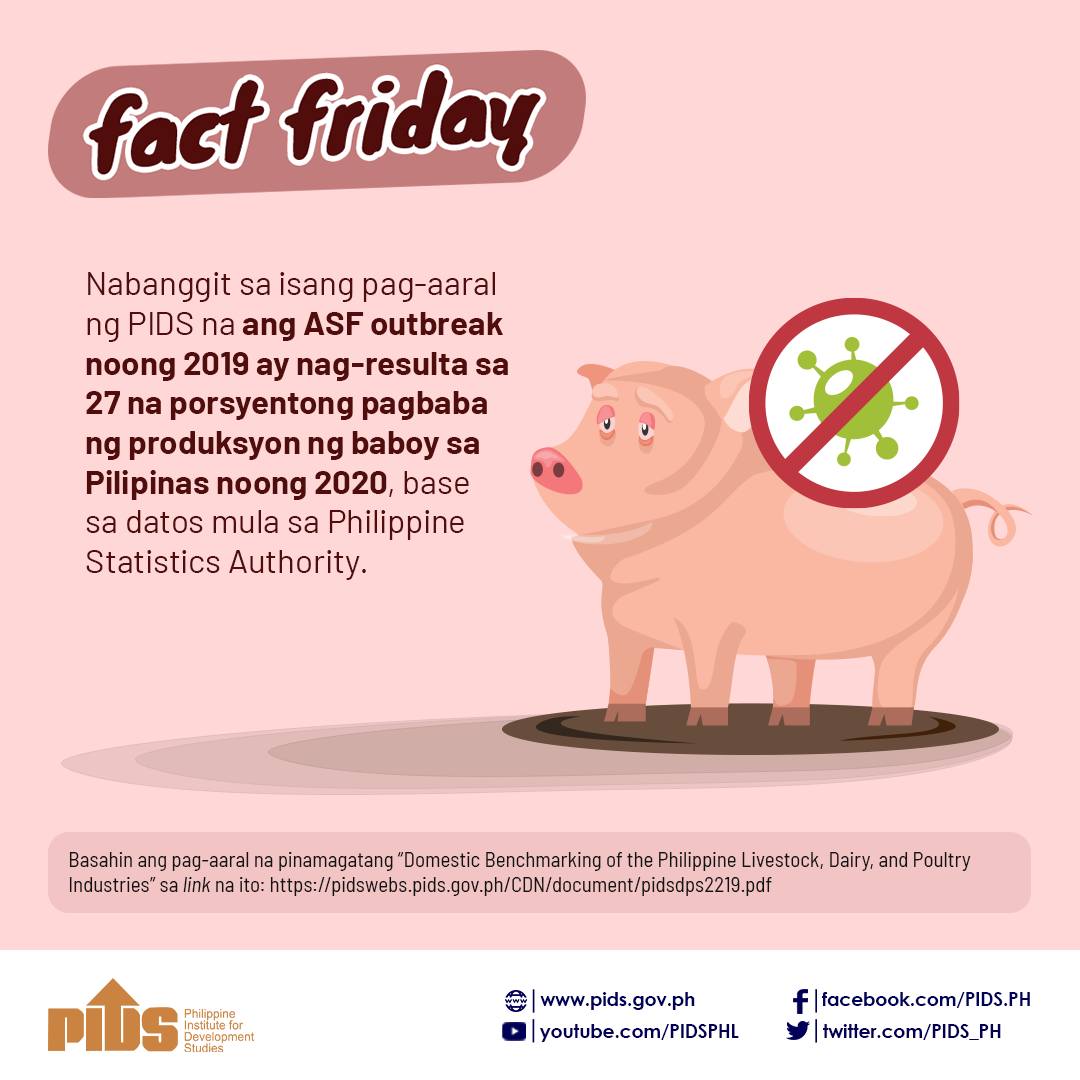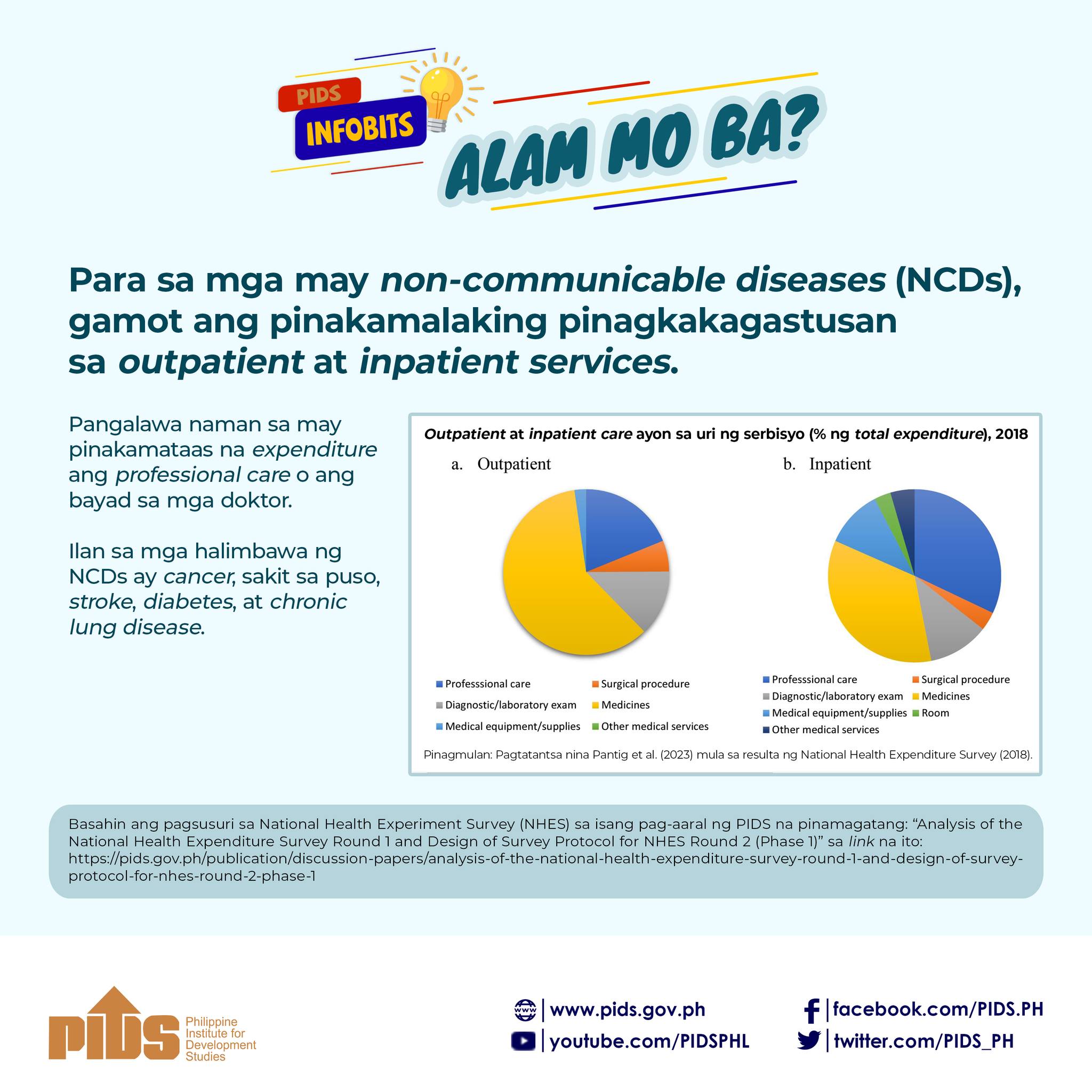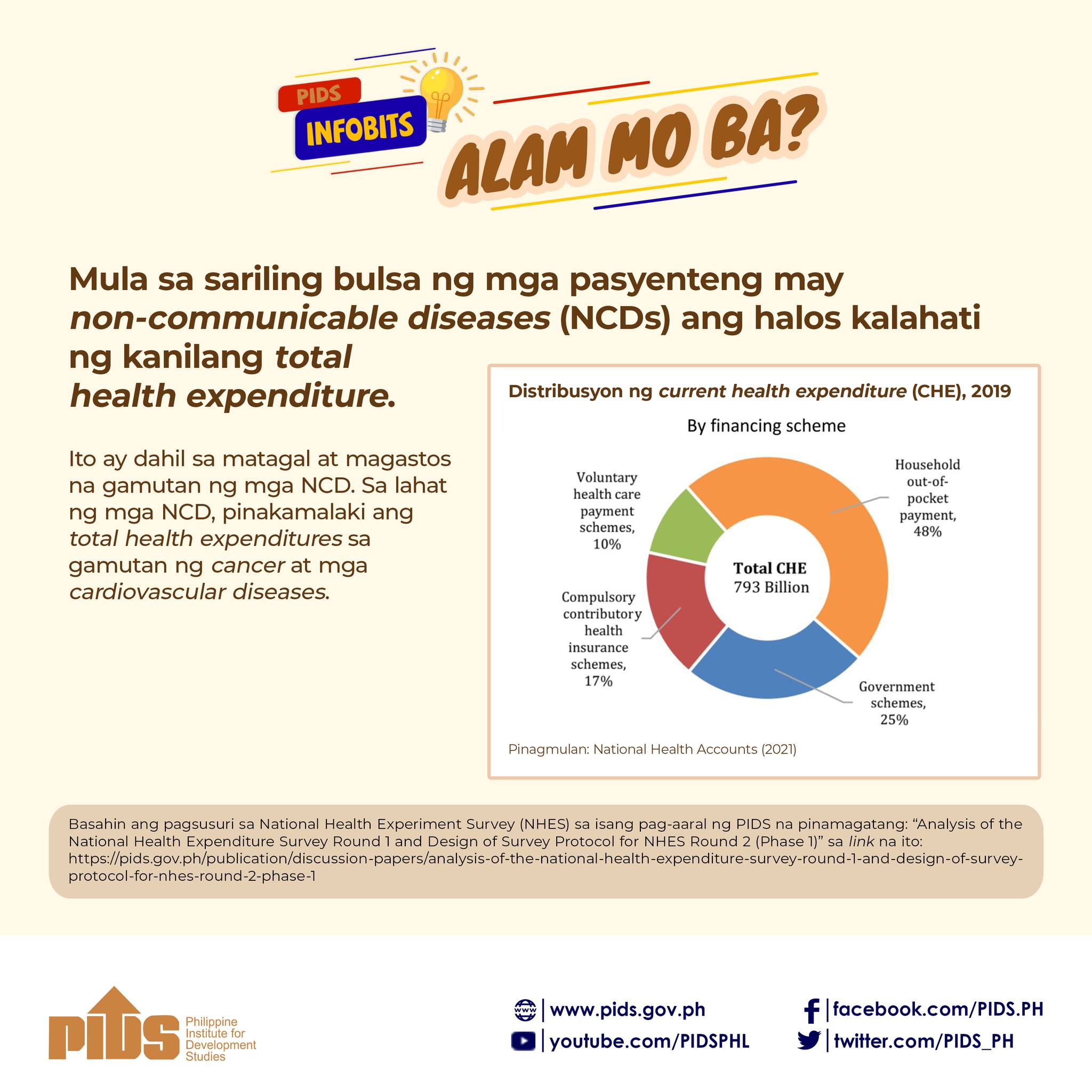The government should strengthen the country’s surveillance of African Swine Fever (ASF) and other animal diseases.
Philippine Chamber of Agriculture and Food Inc. President Danilo Fausto said that improving biosecurity measures is crucial to develop the Philippine livestock, poultry, and dairy industries. One of these is to establish first-border quarantine facilities at various ports for agricultural products to prevent the spread of animal diseases.
Fausto, who spoke as a discussant at a public webinar organized by the Philippine Institute for Development Studies (PIDS) recently, provided a status of the local meat processing industry. He noted that only about 15 percent of total raw material requirements are supplied domestically due to issues with production cost and consistency of meat quality, among others.
The 2016 National Gawad Saka Outstanding Agri-Entrepreneur awardee also made projections on the livestock and poultry industries.
One is that backyard production of swine will drop despite its low cost, creating a void and opportunity for commercial farms to grab. “Many small commercial farms will close [while some will be] acquired by larger farms to scale up—leading to further market concentration,” Fausto said.
Another is that “successful” farms will have better biosecurity, which small farms may find difficult to afford.
Fausto also projected that pork imports would increase to meet the domestic demand. Thus, cold chain operations will also improve to accommodate imported frozen meats.
Meanwhile, the consumption of chicken over pork will increase due to the low price of chicken and the high price of pork.
Fausto provided insights on how to improve the competitiveness of the local livestock, poultry, and dairy industries.
He urged the government to solve the problem of ASF and other animal diseases. He added that swine repopulation is crucial to rebuilding the herd lost due to ASF.












